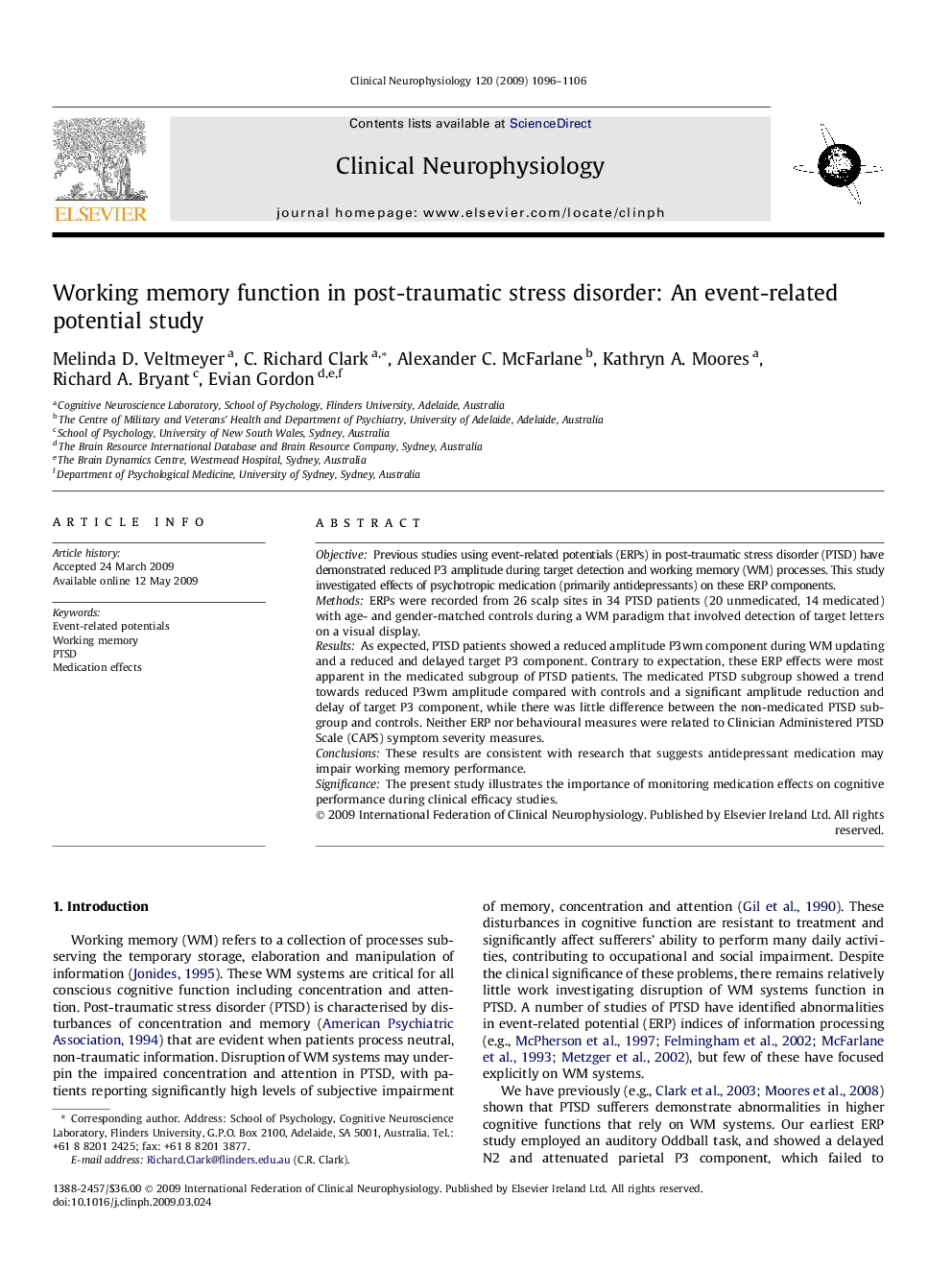| Article ID | Journal | Published Year | Pages | File Type |
|---|---|---|---|---|
| 3046529 | Clinical Neurophysiology | 2009 | 11 Pages |
ObjectivePrevious studies using event-related potentials (ERPs) in post-traumatic stress disorder (PTSD) have demonstrated reduced P3 amplitude during target detection and working memory (WM) processes. This study investigated effects of psychotropic medication (primarily antidepressants) on these ERP components.MethodsERPs were recorded from 26 scalp sites in 34 PTSD patients (20 unmedicated, 14 medicated) with age- and gender-matched controls during a WM paradigm that involved detection of target letters on a visual display.ResultsAs expected, PTSD patients showed a reduced amplitude P3wm component during WM updating and a reduced and delayed target P3 component. Contrary to expectation, these ERP effects were most apparent in the medicated subgroup of PTSD patients. The medicated PTSD subgroup showed a trend towards reduced P3wm amplitude compared with controls and a significant amplitude reduction and delay of target P3 component, while there was little difference between the non-medicated PTSD subgroup and controls. Neither ERP nor behavioural measures were related to Clinician Administered PTSD Scale (CAPS) symptom severity measures.ConclusionsThese results are consistent with research that suggests antidepressant medication may impair working memory performance.SignificanceThe present study illustrates the importance of monitoring medication effects on cognitive performance during clinical efficacy studies.
